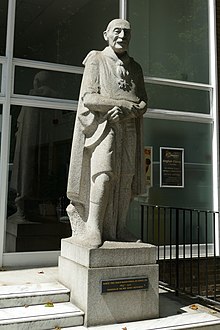
Lieutenant-General Robert Stephenson Smyth Baden-Powell, 1st Baron Baden-Powell, was a British Army officer, writer, founder and first Chief Scout of the world-wide Scout Movement, and founder, with his sister Agnes, of the world-wide Girl Guide/Girl Scout Movement. Baden-Powell authored the first editions of the seminal work Scouting for Boys, which was an inspiration for the Scout Movement.
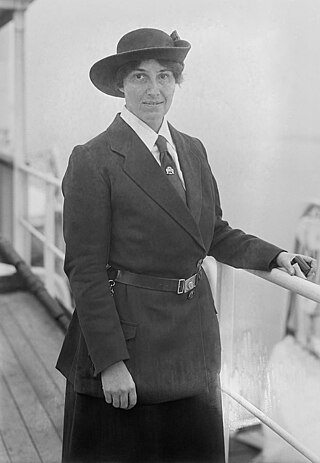
Olave St Clair Baden-Powell, Baroness Baden-Powell was the first Chief Guide for Britain and the wife of Robert Baden-Powell, 1st Baron Baden-Powell. She outlived her husband, who was 32 years her senior, by over 35 years.
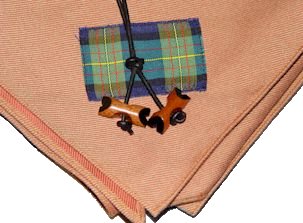
Wood Badge is a Scouting leadership programme and the related award for adult leaders in the programmes of Scout associations throughout the world. Wood Badge courses aim to make Scouters better leaders by teaching advanced leadership skills, and by creating a bond and commitment to the Scout movement. Courses generally have a combined classroom and practical outdoors-based phase followed by a Wood Badge ticket, also known as the project phase. By "working the ticket", participants put their newly gained experience into practice to attain ticket goals aiding the Scouting movement. The first Wood Badge training was organized by Francis "Skipper" Gidney and lectured at by Robert Baden-Powell and others at Gilwell Park in September 1919. Wood Badge training has since spread across the world with international variations.

Gilwell Park is a camp site and activity centre in East London located in the Sewardstonebury area of Waltham Abbey, within Epping Forest, near the border with Chingford. The 109-acre (44 ha) site is owned by The Scout Association, is used by Scouting and Guiding groups. As the original base of leadership training in the Scout movement, it is an important site of the worldwide Scouting movement.

Donald Steele Potter was an English sculptor, wood carver, potter and teacher.

Pax Hill, near Bentley, Hampshire, England, was the family home of Robert Baden-Powell, founder of the Scout movement, and his wife, Olave, for over twenty years during the 20th century. It is located at the end of a half-mile drive, off the main A31 road.
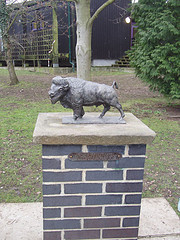
Scout spirit is an attitude that Scouts around the world are supposed to show, based on adherence to the ideals of Scouting. Scouting's founder, Baden Powell, once said, "The spirit is there in every boy; it has to be discovered and brought to light."

Queen's Gate House, still commonly known by its previous name of Baden-Powell House, is a conference centre in South Kensington, London. It was built as a tribute to Lord Baden-Powell, the founder of Scouting, and has served as the headquarters for The Scout Association, as a hostel providing modern and affordable lodging for Scouts, Guides, their families and the general public staying in London and as a conference and event venue.

The Brownsea Island Scout camp was the site of a boys' camping event on Brownsea Island in Poole Harbour, southern England, organised by Lieutenant-General Baden-Powell to test his ideas for the book Scouting for Boys. Boys from different social backgrounds participated from 1 to 8 August 1907 in activities around camping, observation, woodcraft, chivalry, lifesaving and patriotism. The event is regarded as the origin of the worldwide Scout movement.

The 3rd World Scout Jamboree was held in 1929 at Arrowe Park in Upton, near Birkenhead, Wirral, United Kingdom. As it was commemorating the 21st birthday of Scouting for Boys and the Scouting movement, it is also known as the Coming of Age Jamboree. With about 30,000 Scouts and over 300,000 visitors attending, this jamboree was the largest jamboree so far.
The Scout and Guide movement in Malta is served by three organizations:
Francis "Skipper" Gidney (1890–1928) was an early leader of the Scouting movement in the United Kingdom. He was appointed the first Camp Chief of Gilwell Park in May 1919, and organized the first Wood Badge adult leader training course there in September 1919. He served in the Scouting organization until 1923, and was honoured by having the Gidney Cabin at Gilwell, a training centre, named for him.
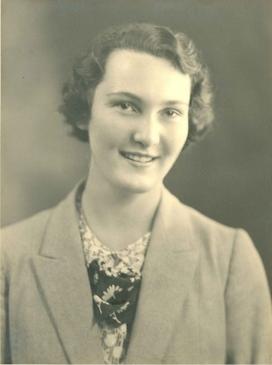
Betty St Clair Clay was the younger daughter of Olave Baden-Powell, the first Chief Guide and Robert Baden-Powell, 1st Baron Baden-Powell, the founder of Scouting. She was the sister of Peter Baden-Powell, 2nd Baron Baden-Powell; the aunt of Robert Baden-Powell, 3rd Baron Baden-Powell, and Michael Baden-Powell, 4th Baron Baden-Powell; the grandmother of murderer, Gerard Baden-Clay; the niece of Agnes Baden-Powell and Baden Baden-Powell; niece and goddaughter of Warington Baden-Powell; and granddaughter of the Rev. Prof. Baden Powell.

The 'Unknown Scout' was an anonymous member of The Boy Scout Association in the United Kingdom whose good turn inspired William D. Boyce to form the Boy Scouts of America (BSA).

The graves of Lieutenant-General The 1st Baron Baden-Powell and his wife, Olave, Baroness Baden-Powell, G.B.E., are in Nyeri, Nyeri County, Kenya, near Mount Kenya. Lord Baden-Powell died on 8 January 1941, and is buried in St. Peter's Cemetery in the Wajee Nature Park. When his wife Olave, Lady Baden-Powell, died, her ashes were sent to Kenya and interred beside her husband. Kenya has declared Baden-Powell's grave a national monument. Scouts consider the grave, "one of the most revered shrines and pilgrimage sites in the world."

B-P's footprint is a casting, usually in bronze or brass, of the right foot of Lord Baden-Powell, the founder of the Scout and Guide Movements, who is known as "B-P." The idea is that people may put their foot into this casting, so that they can say that they have "walked in the footsteps of B-P."
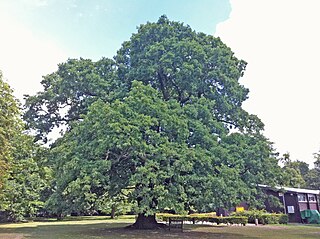
The Gilwell Oak is an oak tree on the grounds of The Scout Association's headquarters at Gilwell Park, Essex. It is reputed to have been used as a hiding place by Dick Turpin and since the 20th century has become closely associated with the Scout movement. The tree is situated close to the training ground for the association's first Scout leaders and provided material for the earliest Wood Badges. The oak inspired Scout movement founder Robert Baden-Powell to create "the moral of the acorn and the oak" an analogy for the growth of the Scout movement and the personal growth of its members. The Gilwell Oak was voted England's Tree of the Year by the public in 2017 and was subsequently selected by a panel of experts as the UK Tree of the Year.

A statue of Robert Baden-Powell, founder of Scouting, is installed on the Quay in Poole harbour, Dorset on the south coast of England. The statue, erected in 2008, is a life-size bronze of Robert Baden-Powell by sculptor David Annand. It portrays Baden-Powell in his scout uniform, seated on a log as if for a campfire, with a pair of log seats either side which "allow easy access for photo opportunities".
Ferenc Hill is located in the Buda Hills in the 2nd district of Budapest.
